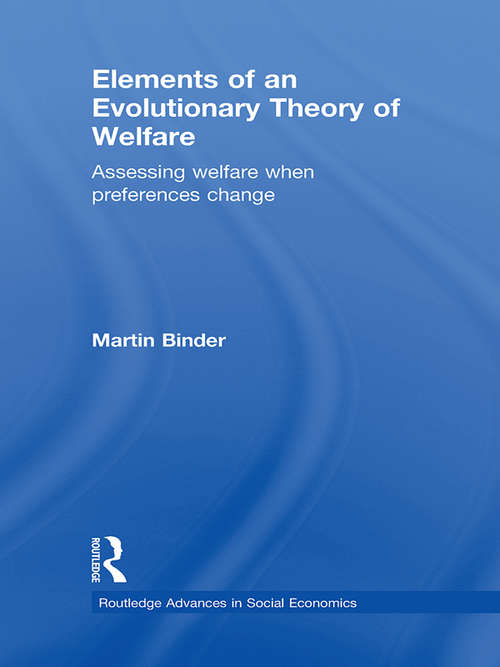Elements of an Evolutionary Theory of Welfare: Assessing Welfare When Preferences Change (Routledge Advances in Social Economics)
By:
Sign Up Now!
Already a Member? Log In
You must be logged into Bookshare to access this title.
Learn about membership options,
or view our freely available titles.
- Synopsis
- It has always been an important task of economics to assess individual and social welfare. The traditional approach has assumed that the measuring rod for welfare is the satisfaction of the individual’s given and unchanging preferences, but recent work in behavioural economics has called this into question by pointing out the inconsistencies and context-dependencies of human behaviour. When preferences are no longer consistent, we have to ask whether a different measure for individual welfare can, and should, be found. This book goes beyond the level of preference and instead considers whether a hedonistic view of welfare represents a viable alternative, and what its normative implications are. Offering a welfare theory with stronger behavioural and evolutionary foundations, Binder follows a naturalistic methodology to examine the foundations of welfare, connecting the concept with a dynamic theory of preference learning, and providing a more realistic account of human behaviour. This book will be of interest to researchers and those working in the fields of welfare economics, behavioural and evolutionary economics.
- Copyright:
- 2010
Book Details
- Book Quality:
- Publisher Quality
- ISBN-13:
- 9781136956164
- Related ISBNs:
- 9780203849552, 9780415562980, 9780415562980, 9781138807082, 9781138807082
- Publisher:
- Taylor and Francis
- Date of Addition:
- 03/22/20
- Copyrighted By:
- Martin Binder
- Adult content:
- No
- Language:
- English
- Has Image Descriptions:
- No
- Categories:
- Nonfiction, Business and Finance
- Submitted By:
- Bookshare Staff
- Usage Restrictions:
- This is a copyrighted book.
